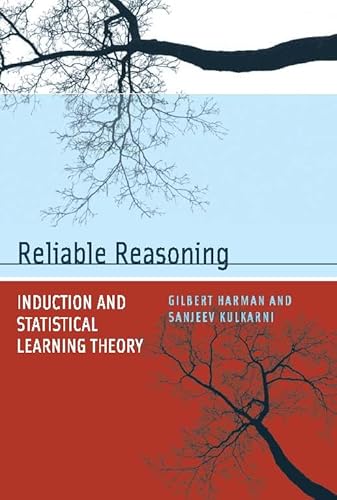
Synopsis
In Reliable Reasoning, Gilbert Harman and Sanjeev Kulkarni -- a philosopher and an engineer -- argue that philosophy and cognitive science can benefit from statistical learning theory (SLT), the theory that lies behind recent advances in machine learning. The philosophical problem of induction, for example, is in part about the reliability of inductive reasoning, where the reliability of a method is measured by its statistically expected percentage of errors -- a central topic in SLT.
After discussing philosophical attempts to evade the problem of induction, Harman and Kulkarni provide an admirably clear account of the basic framework of SLT and its implications for inductive reasoning. They explain the Vapnik-Chervonenkis (VC) dimension of a set of hypotheses and distinguish two kinds of inductive reasoning. The authors discuss various topics in machine learning, including nearest-neighbor methods, neural networks, and support vector machines. Finally, they describe transductive reasoning and suggest possible new models of human reasoning suggested by developments in SLT.
"synopsis" may belong to another edition of this title.
About the Authors
Gilbert Harman is Stuart Professor of Philosophy at Princeton University and the author of Explaining Value and Other Essays in Moral Philosophy and Reasoning, Meaning, and Mind.
"About this title" may belong to another edition of this title.
Other Popular Editions of the Same Title
Search results for Reliable Reasoning – Induction and Statistical...
Reliable Reasoning - Induction and Statistical Learning Theory (Jean Nicod Lectures)
Seller: Shoemaker Booksellers, Gettysburg, PA, U.S.A.
Hardcover. Condition: Fine. Dust Jacket Condition: Near Fine. 1st Edition. Fine, hardcover copy in gray cloth in a near fine dustjacket. Contents are clean and free of any markings. Seller Inventory # 30077


